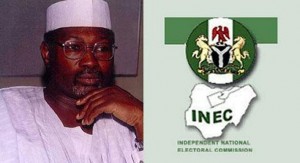Despite the fact that the 1999 Constitution of the Federal Republic of Nigeria does not allow for true devolution of powers from the centre, as the constitution of a true federal republic should, the drafters of the constitution included a section (Third Schedule, Part II, Section B) that places local government elections under the direct responsibility of states which shall be conducted via state independent electoral commissions (SIECs). The constitution also spelt out how the boards of SIECs shall be constituted.
SIECs, like their federal version, the Independent National Electoral Commission (INEC) are in charge of organizing elections into councillorship and chairmanship positions at the local government level.
However, SIECs, unlike the national electoral commission which has gone through varying stages of incompetence and inefficiency before undergoing a reformation process, still remain mired in incompetence.
State independent electoral commissions have become appendages of not just the governments in power at the states, but also of the ruling parties. The members of the state commissions openly have party allegiances, elections are poorly organized and brazenly rigged, and the term ‘independent’ is completely rubbished.
Almost all local government elections are completely won by the ruling parties, and in cases where there are electoral petitions, the results are rarely overturned. This is even in states where there are regular elections, as most states hold them any time they deem it fit, without any consistency or adherence to the idea of organising elections at the expiration of tenures.
These situations have led to calls that in the current constitution review, SIECs should be abrogated and their functions handed over to INEC. The belief – and not a wrong one too – is that local government elections organized by INEC would be more credible and would not always result in ‘landslide’ victories for the ruling parties in the states.
However, I beg to differ with this opinion that INEC has to take over the functions of the SIECs for us to have more credible local government elections. Time was when INEC itself was a byword for corruption and the epitome of electoral malpractices and irregularities. Nigerians could not literally wait to see the back of its former chairman, Maurice Iwu, who was and is still one of the most unpopular figures to have ever walked this land. But change came to INEC not just because the government was willing to bring the change, but because it had to. This is thanks to the pressure exerted on it by the media, civil society organizations, and active citizens who railed to the high heavens each and every time INEC made a misstep and used the opportunity to press for change.
The result of this has been the appointment of a credible chairman for INEC in the person of Professor Attahiru Jega and his commissioners. Their credibility largely led to a 68% drop in electoral petitions between 2007 and 2011, a clear evidence of improvement in our elections and electoral processes. Not only that, when it was discovered that two of the commissioners appointed are/were members of the ruling Peoples’ Democratic Party, in clear contravention of the criteria that no INEC staff should be a member of any political party, they were promptly replaced. This would not have been possible if citizens did not act as watchdogs over the electoral body.
This is the sort of action that is needed at the states level to make SIECs effective. Simply handing over their responsibilities to INEC would make nonsense of our federal structure. One of my personal hopes in this constitution review is that it shall produce a document that seeks to strengthen our states and local governments, and scrapping SIECs would be counter-productive to the achievement of that goal.
There is so much that goes on at the state level because there is no form of oversight there, like I explained in this article of mine. For example, though local government elections were held in Lagos and Niger States weeks apart, the ‘landslide’ victory by the ACN in Lagos State raised a lot of eyebrows, the same ‘landslide’ victory in Niger State by the PDP passed without notice. The big difference was the fact that Lagos has groups and individuals who are politically active and act as a sort of watchdog over the government, something virtually absent in Niger State. The watchdogs in Lagos State would now make it harder for the ruling party and the SIEC to attempt another ‘landslide’ election next time.
If we need our institutions of democracy to be strong, we need to exert the necessary pressure on them to reform. Let us as citizens rise to the task of becoming watchdogs over our SIECs so that they sit up and start performing. Any law or policy that weakens the federal nature of our nature rather than strengthen it should not be supported.
SIECs should stay.

